Lee, Veronika, Durga Marasini, Wenye Dong, Hyun-Jung Lee, and DonHee Lee. "Comparative Study of Key Supply Chain Management Elements in Sustainability Reports". Businesses. February 11, 2021. https://mdpi-res.com/...
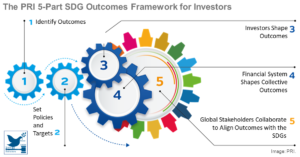 For the evaluation of enterprise value and investment decision-making, firms must demonstrate their commitment to the Sustainable Development Goals (SDGs). For this, several factors are considered, including supply chain management (SCM), human rights, climate change, safety, and environmental risks. This study analyzed sustainability reports and revealed several factors that are critical for effective supply chain management. While the study identified common categories, the variations imply a need for global standards for comparative analysis. As businesses are required to demonstrate their commitment to the SDGs, the study highlights the importance of sustainability, its effective measurement, and global standards for sustainability reports.
For the evaluation of enterprise value and investment decision-making, firms must demonstrate their commitment to the Sustainable Development Goals (SDGs). For this, several factors are considered, including supply chain management (SCM), human rights, climate change, safety, and environmental risks. This study analyzed sustainability reports and revealed several factors that are critical for effective supply chain management. While the study identified common categories, the variations imply a need for global standards for comparative analysis. As businesses are required to demonstrate their commitment to the SDGs, the study highlights the importance of sustainability, its effective measurement, and global standards for sustainability reports.
Posted on 23/05/22
Recent Abstracts
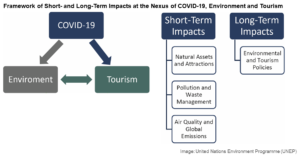
COVID-19, Environmental Impacts, and Implications for Tourism
Tourism in many countries, particularly in developing economies, depends largely on such natural assets as forests, coastlines and wildlife and are linked to such environmental conditions as clean air and water. Given the interdependency of tourism and the environment, the environmental impacts of COVID-19 have short- ...
Posted on 10/11/21
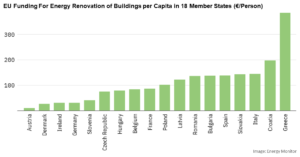
Europe Fails to Act on Energy Waste in Recovery and Resilience Plans
At least 37% of the EU Recovery and Resilience Facility (RRF) for pandemic recovery funding must be spent directly on climate-related actions. This study of the National Recovery and Resilience Plans (NRRPs) in 18 member states reveals that only 8% on average is allocated to energy renovation. Austria is the worst pe ...
Posted on 09/11/21
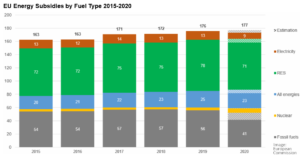
EU Prepares to Include Nuclear and Gas in Green Investment List
EU countries have been arguing for three years whether to include nuclear and gas as green investments in the taxonomy. The decision will shape EU climate and energy policy for decades and have effects far beyond the financial sector. France, the UK, and Eastern European countries threatened to veto the EU taxonomy ...
Posted on 09/11/21

German Politicians Affirm Rejection of Nuclear Power in EU Sustainable Finance Taxonomy
Germany's environmental minister from the Social Democrats (SPD), Svenja Schulze, has affirmed that the country will work towards excluding nuclear power from the EU taxonomy for sustainable investments. She says that they don’t want nuclear energy, don’t think it’s sustainable, and don’t want the EU to support it. T ...
Posted on 08/11/21
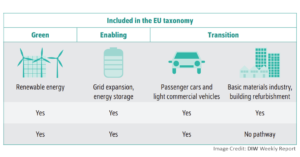
The EU Taxonomy
Different standards and metrics make it difficult for investors to compare green investments. The EU taxonomy establishes a standardized and transparent system for classifying and investing in sustainable economic activities. The taxonomy operates on the project level and the firm level. The project level considers t ...
Posted on 08/11/21
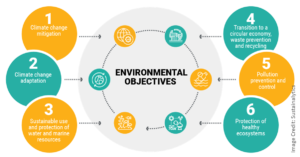
EU Taxonomy for Identifying ‘Sustainable Economic Activities’
The EU taxonomy is a classification system that establishes a list of six "environmentally sustainable economic activities". It defines which economic activities are deemed to be environmentally sustainable to help the EU scale up the needed "sustainable investment" to become "climate neutral" by 2050. Unclear defini ...
Posted on 08/11/21
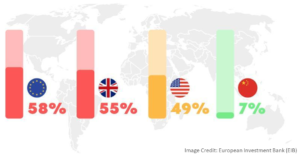
On Climate Change, Government Trust Desperately Needs to Be Restored
75% of EU citizens are more concerned with the climate emergency than they think their government is. Around half say the difficulty in solving the climate crisis is mainly because of government inactivity. Most consider climate change the biggest challenge of this century and believe that a radical change in habits ...
Posted on 07/11/21
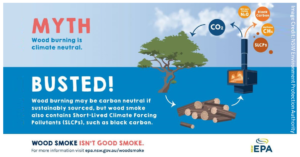
INSIDER: Why Burning Trees for Energy Harms the Climate.
Per unit of generated energy, CO₂ emissions from burning wood for heat can be 150% higher than from natural gas and 30% more than from coal. Harvesting trees for energy releases carbon into the atmosphere that would otherwise have remained stored in the forest. Harvesting trees also foregoes carbon sequestration had ...
Posted on 07/11/21
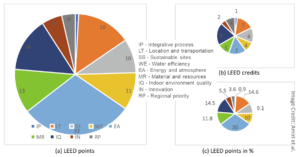
Embodied Emissions of Buildings – A Forgotten Factor in Green Building Certificates
As a points-based green certification, LEED assigns 110 points – the highest level, platinum (80 + points), accredits only 3 out of a total of 110 points directly to embodied emissions. In BREEAM, 12 points (8%) are directly related to material selection, of which 5 points (3%) are based on life cycle assessment (LCA). ...
Posted on 06/11/21
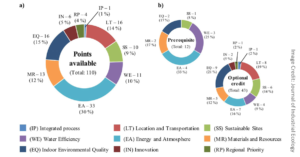
BREEAM and LEED Green Certification Schemes Are ‘Meaningless’ Says Andrew Waugh
Environmental certification schemes such as BREEAM and LEED focus largely on operational emissions rather than CO₂ from the construction supply chain. However, embodied carbon emissions comprise around half of all emissions from buildings. The certification systems focus chiefly on operational carbon. Where 3% of th ...
Posted on 06/11/21
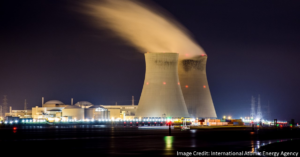
The Green Brief: Gas, Nuclear and the EU Taxonomy Saga
The European Commission must determine which economic activities in the EU can be labeled as a sustainable investment based on their meeting strict environmental criteria. It is expected that the Sustainable Finance and EU Taxonomy will define nuclear power as a “green”, “transition”, or even an "amber" technology. T ...
Posted on 04/11/21
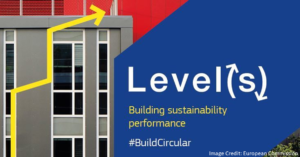
Level(s)
Level(s) specifies technical screening criteria for investments in the built environment that support the EU’s objective to reduce the whole-life carbon impact of new buildings. It is part of the Sustainable Finance and EU Taxonomy package that defines activities that contribute significantly to climate change mitigat ...
Posted on 04/11/21
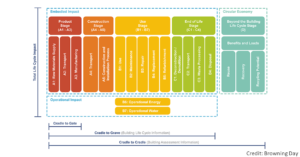
Why It’s Time to Get Serious About Embodied Energy
Embodied energy is the energy consumed by all processes associated with the production of a product – from the mining and processing of natural resources to the manufacturing, transport and delivery of the finished product. It is the energy consumed in the extraction of materials and production of the products used to ...
Posted on 03/11/21

WWF and Greenview Collaborate with Hotel Industry to Develop a Methodology to Measure Waste across Hotel Chains
The Hotel Waste Measurement Methodology provides a common approach for the hotel industry to collect data, and measure and report food waste. The measurement methodology allows major brands and individual properties to set meaningful goals to reduce food waste, keep food out of landfills, and track progress over time ...
Posted on 02/11/21
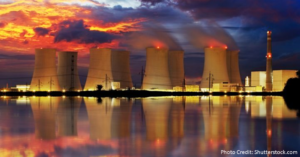
How Does Nuclear Energy Affect the Environment?
Nuclear energy is propagated by science, companies, and governments as a source of clean energy source, as opposed to CO2-producing plants. However, the effects nuclear energy has on the environment pose serious threats that cannot be ignored or greenwashed. The principal environmental and safety concerns are CO2 emi ...
Posted on 01/11/21

